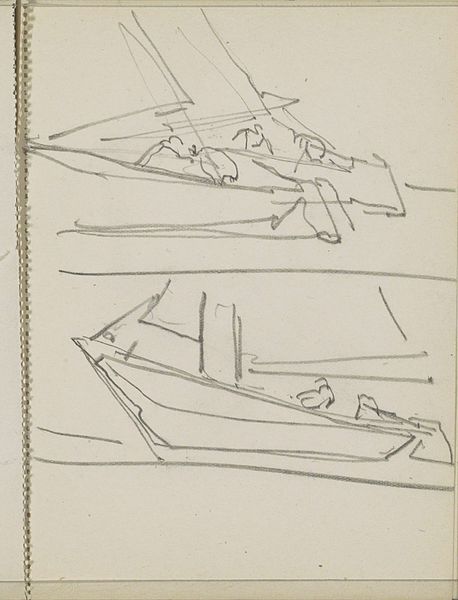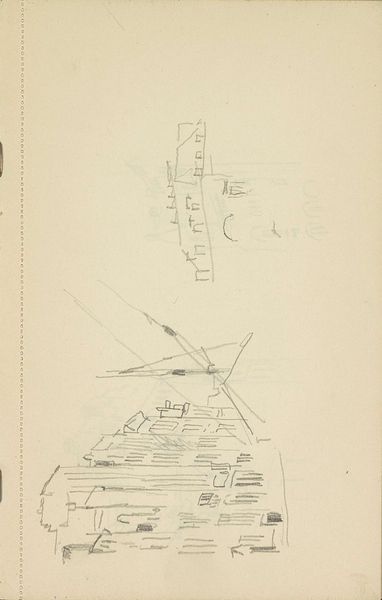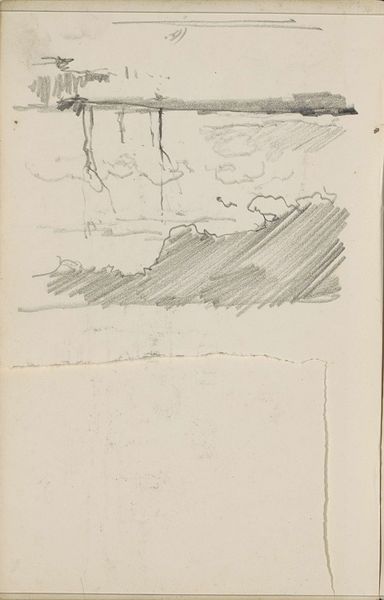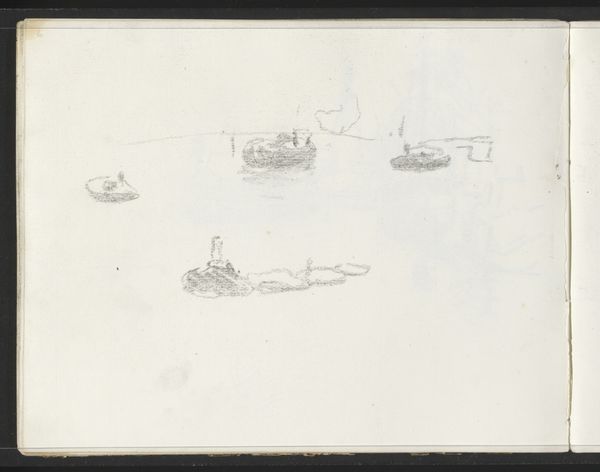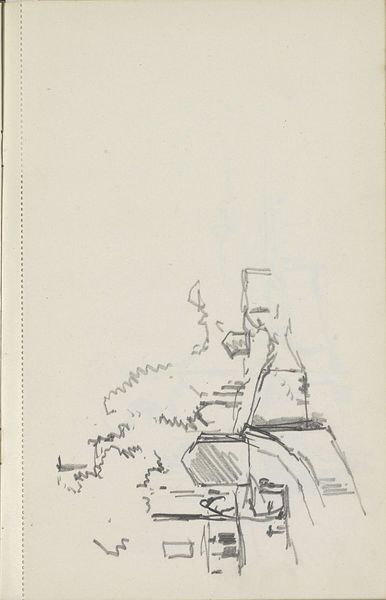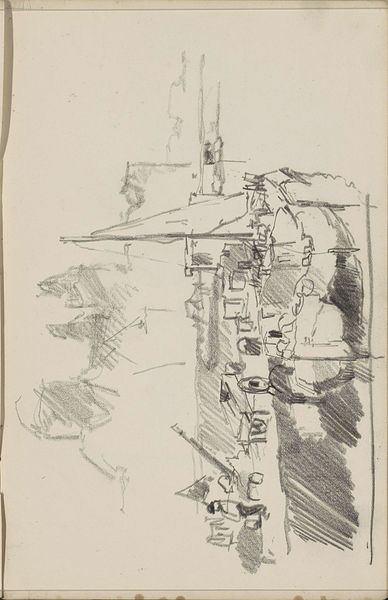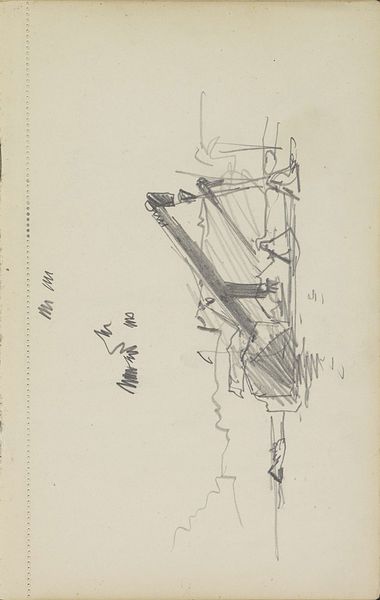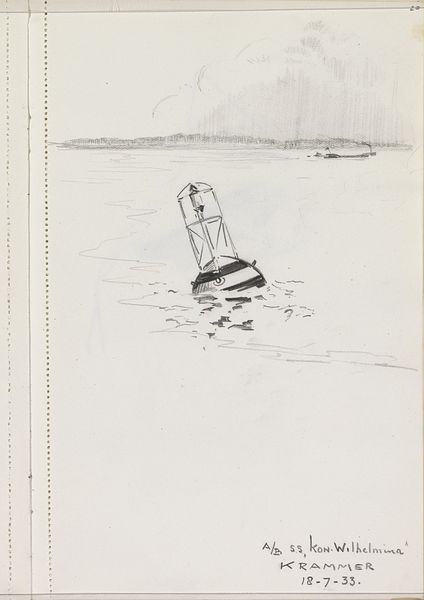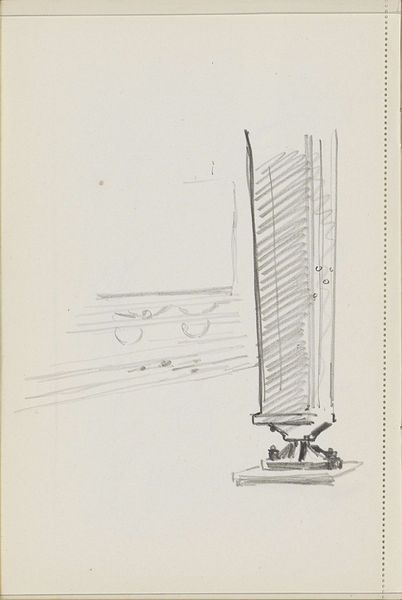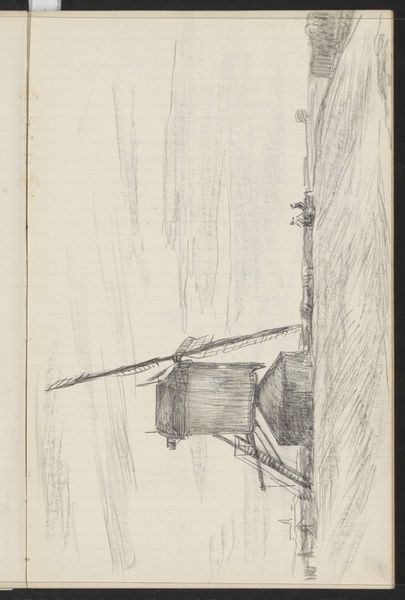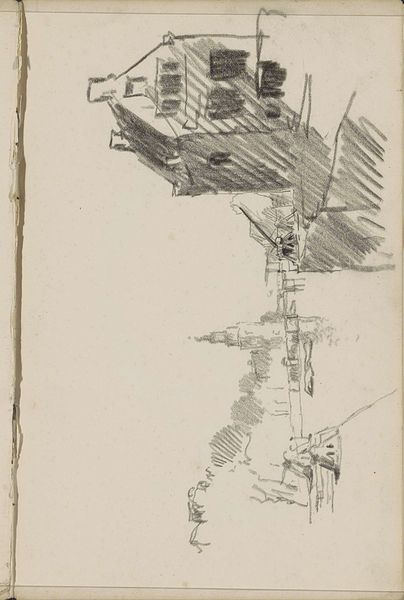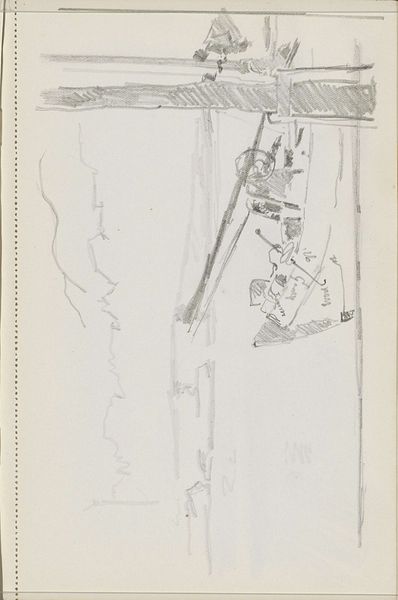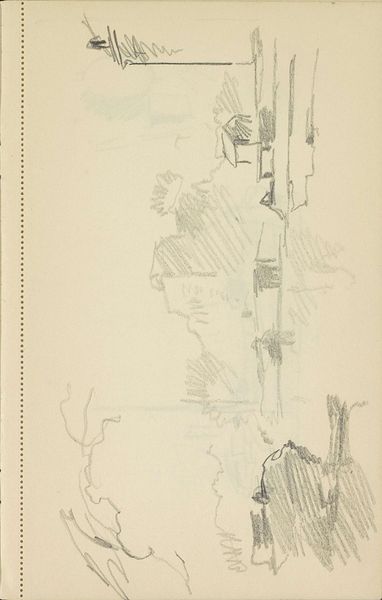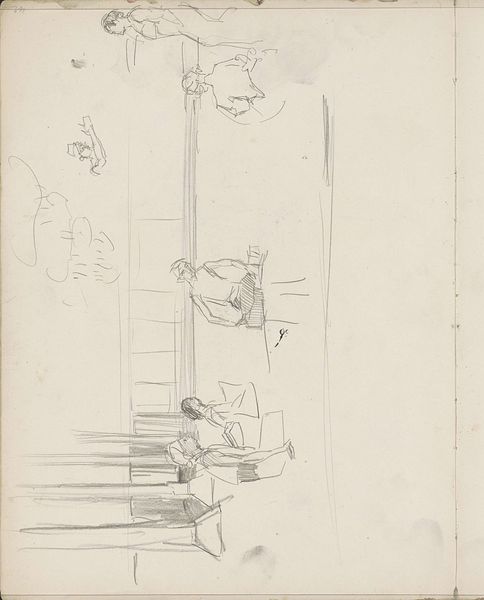
drawing, pencil
#
architectural sketch
#
drawing
#
quirky sketch
#
sketch book
#
landscape
#
personal sketchbook
#
idea generation sketch
#
sketchwork
#
sketch
#
pen-ink sketch
#
pencil
#
sketchbook drawing
#
storyboard and sketchbook work
#
initial sketch
Copyright: Rijks Museum: Open Domain
Editor: This is "Zeilschip op open water" by Cornelis Vreedenburgh, made sometime between 1890 and 1946. It’s a drawing, likely pencil or ink, and it looks like a page ripped straight from a sketchbook. I’m struck by the stark contrast between the loosely sketched sky and the more defined ship at the bottom. How would you interpret this piece? Curator: What is most compelling to me is Vreedenburgh’s calculated use of line and shading. Notice how the upper register features horizontal lines suggesting atmospheric perspective, while the lower section presents a vertical thrust with a confluence of linear marks creating the ship’s form. The empty space separating them is as important as what is rendered; it forces our eye to perform a visual leap. What effect do you believe the negative space creates in the work? Editor: I guess it emphasizes the feeling that this is a fleeting observation, a captured moment. But wouldn’t a historical approach tell us more about the maritime context of the time? Curator: Perhaps, but the cultural significance doesn't negate the fundamental compositional elements at play here. The tension arises from the incompleteness and the implied narrative suggested by these opposing masses on the page, quite separate from historical implications. Look at the materiality, the paper's grain even, which speaks to the artist’s process. Editor: I see your point. Focusing on the composition itself highlights the artist's choices in guiding the viewer’s eye and creating this specific tension. Curator: Precisely. Deconstructing the image's intrinsic visual language allows for an insightful encounter beyond contextual interpretations. Editor: I appreciate how focusing on the form helps to understand the feeling, rather than just the subject. Curator: And understanding those artistic decisions through formalist analysis certainly enrich our understanding and response to this compelling work.
Comments
No comments
Be the first to comment and join the conversation on the ultimate creative platform.
